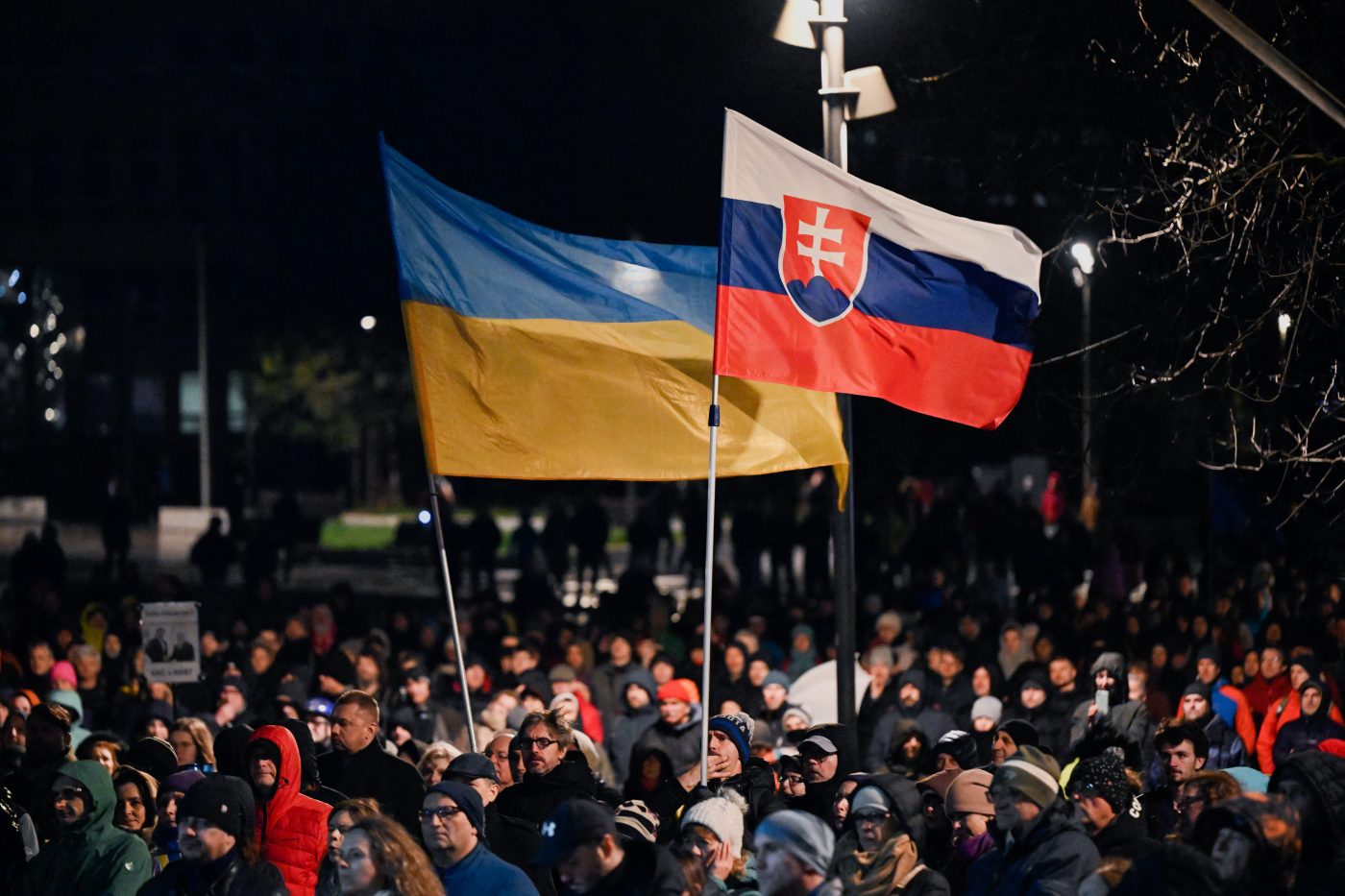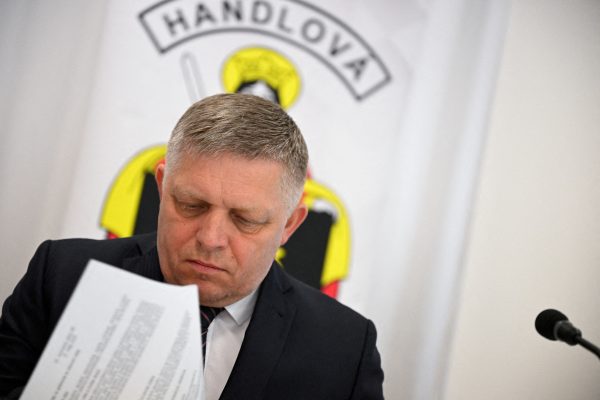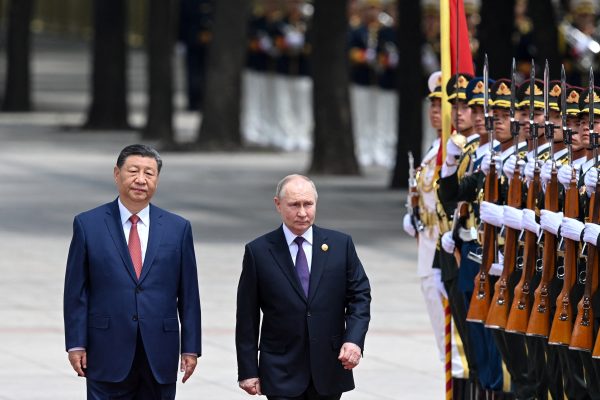The contrast could not have been starker.
In mid-April, tens of thousands of ordinary Slovaks defied their government’s refusal to supply Ukraine with donations of desperately needed artillery ammunition by crowdfunding an effort to do just that.
Almost as striking as their generosity – the initial target of €1m ($1.07m) was reached in less than 48 hours and millions more have since been raised — is the enduring faith that Slovaks have shown in their former compatriots in the Czech government.
All the money is being channeled to Czech President Petr Pavel’s February initiative to buy hundreds of thousands of shells for Ukraine on global arms markets.
Most funds are coming from governments; Norway announced a donation of more than $150 million in early March and many others have followed.
But Slovakia’s nationalist-populist coalition ended all military support for Ukraine’s defense against Russia’s invasion when it took over in October. The “Ammunition for Ukraine” initiative pointedly notes, in its FAQs: “We are not in contact with the Slovak government, as it has officially declared that it will not join the Czech initiative. For this reason, a civic collection was created.”
The fundraising effort relies heavily on trust: unlike other such initiatives, there is no transparent receiving account, no information about donors is being saved, and the suppliers of the heavy artillery rounds will not be named, partly since some of them, in places thought to include Turkey and South Africa, are also potential suppliers of Russia.
That such a torrent of donations is flowing from one country’s population to another country’s government initiative is remarkable.
But while Czechs and Slovaks maintain good relations at the personal level (many Slovaks have Czech relations or family living across the border), this goodwill is not reciprocated on a state-to-state level.
Instead, the Slovak government is finding itself increasingly isolated — and for obvious reasons.
A decision by Slovakia’s foreign minister decision to meet his Russian counterpart Sergey Lavrov in early March, at the urging of Russia-friendly Prime Minister Robert Fico, prompted the Czech government to downgrade formal relations and intelligence ties with Bratislava.
Czech Foreign Minister Jan Lipavský, in comments to Czech public radio, said his government did not agree with Slovakia on “basic issues of security”, while Senator Pavel Fischer, chair of the senate foreign affairs committee, described Fico’s actions as a “security risk” to the Czech Republic.
The break is particularly glaring given that the Slovak and Czech Republics have previously placed great stores by their “above-standard” ties. After being part of the same state for much of the 20th century, the two countries split in January 1993; the “Velvet Divorce” proved unusually amicable by the standards of 1990s Europe, and the pair had remained close ever since.
Now, however, the Czechs seem to have lost patience with Fico’s echoing of Kremlin talking points: he frequently refers to “neo-Nazis” in Ukraine, and has formally condemned Slovakia’s neighbor as “one of the most corrupt countries in the world.”
Aside from his incessant denigration of Ukraine, Prague is also wary of Fico’s warm embrace of Viktor Orbán in neighboring Hungary, on whose soft authoritarianism he seems increasingly to be modeling his own approach towards the justice system and the media.
The Slovak premier has recently taken to attacking senior judges by name, accusing them of “human rights abuses” – an apparent reference to their failure to dismiss cases in which his political allies are being prosecuted.
He is simultaneously stacking the Judicial Council, the notionally independent body that selects and disciplines judges, with his supporters. The recent, peremptory dismissal of its chairman is a sign that this process is bearing fruit.
The country’s Supreme Court, too, is now in his sights; an attempt by Fico’s justice minister to seize copies of all the case files held by the top appeals court — including witness data and privileged testimony related to politically sensitive cases, some of them involving Fico’s allies — was rebuffed by the chief justice on 24 April. Fico described this as “a scandal.”
In March, he took aim at the head of Slovakia’s highest legal body, the Constitutional Court, calling on him to resign in a spat over — revealingly — the media.
The Culture Ministry has presented plans to dissolve the country’s public broadcaster, RTVS, which Fico accuses of being “in a permanent fight with the government.”
In fact, his own party has been picking most of the fights. In one particularly ugly incident last year, RTVS’s refusal to give airtime to a firebrand MP who turned up uninvited at its studios resulted in a leading female presenter receiving rape and death threats.
The broadcaster will now be reconstituted with an eye to the creation of an avowedly pro-government outfit akin to its state-sponsored counterparts in Hungary. Both appear to fly in the face of the new European Union (EU) Media Freedom Act, passed in December.
The station’s existing staff seem unwilling to cooperate. As for viewers, they at least have Czech stations to watch — the law of unintended consequences continues to apply.
James Thomson is a columnist for The Slovak Spectator, the Bratislava-based English-language newspaper and website.
Europe’s Edge is CEPA’s online journal covering critical topics on the foreign policy docket across Europe and North America. All opinions are those of the author and do not necessarily represent the position or views of the institutions they represent or the Center for European Policy Analysis.





